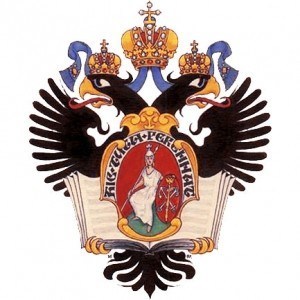Photos of university / #unlincoln
The University of Nebraska–Lincoln offers a comprehensive Community and Regional Planning program designed to equip students with the knowledge, skills, and practical experience necessary to address the complex challenges of planning and development in diverse community settings. This program emphasizes a multidisciplinary approach, integrating principles from urban planning, environmental sustainability, public policy, and social sciences to prepare graduates for effective leadership in both public and private sectors. Students will engage with core topics such as land use planning, transportation systems, housing, economic development, environmental impact assessment, and community engagement techniques. The curriculum combines theoretical foundations with hands-on projects, internships, and collaborative research opportunities, enabling students to apply their learning to real-world issues. Faculty members are experienced professionals and scholars dedicated to fostering innovative solutions that promote sustainable growth and equitable development. The program not only focuses on urban centers but also highlights regional and rural planning challenges, ensuring graduates can serve diverse communities. Graduates from the Community and Regional Planning program can pursue careers as urban and regional planners, policy advisors, environmental consultants, or community development specialists. The program is committed to preparing students to become responsible stewards of their communities, capable of developing inclusive, resilient, and sustainable strategies for future growth. Through its strong network of alumni and industry partners, the program offers valuable networking opportunities and pathways to employment in planning agencies, government departments, non-profit organizations, and private consulting firms. Overall, the University of Nebraska–Lincoln’s Community and Regional Planning program provides a rigorous and comprehensive education that empowers students to positively shape the built environment and contribute to the well-being of communities across Nebraska and beyond.
The required 48 graduate credit hours for graduation are divided into three main curriculum areas: core coursework, electives and completion tracks.
Students complete 24 graduate credit hours of core coursework which includes:
- CRPL 800 "Introduction to Planning"
- CPRL 802 "Planning Theory"
- CRPL 804 "Legal Aspects of Planning"
- CRPL 810 "Qualitative Techniques"
- CRPL 830 "Planning with GIS"
- CRPL 840 "Planning Methods and Analysis"
- CRPL 900 "Professional Planning Practice"
- CRPL 990 "Planning Studio"
Each of the required core courses are 3 graduate credit hours each, comprising a total block of 24 graduate-level credit hours.
Students complete 18 to 24 graduate credits of electives.
Students complete one of three completion tracks that effect the number of elective hours needed for graduation. The three completion tracks are:
-
Master's Thesis in area of concentration/specialization/interest and oral examination
CRPL 899: Master's Thesis (6 graduate credit hours); 18 graduate credit hours of elective courses
-
Professional Project in area of concentration/specialization/interest and oral examination
CRPL 898: Professional Project (6 graduate credit hours); 18 graduate credit hours of elective courses
-
Comprehensive Written and Oral Exam covering required core courses
Comprehensive Exam (0 graduate credit hours); 24 graduate credit hours of elective courses
- If you have a bachelor's degree in any one of a broad spectrum of majors - the arts, social sciences, physical sciences, natural resources, geography, engineering, humanities, business, agriculture, among others - from an accredited university, you are encouraged to apply for admission to the Master of Community and Regional Planning degree program.
- Transcripts and/or mark sheets showing the grades earned in each course.
- A diploma or certificate of graduation. (Not required if the transcript includes the name of the degree and the date it was conferred.)
- The Diploma Supplement, if the degree is Bologna-compliant.
- Online Application for Graduate Admission
- $50 Application Fee (paid with credit card or check)
- One copy of all college/university official transcripts
- Statement of Interest
- Resume
- Three references will be asked to submit letters of recommendation electronically
- GRE score (recommended, not required)
- TOEFL or IELTS score. Exemptions for the English proficiency requirement are granted for non-native speakers who have received a bachelor's or more advanced degree either from a U.S. institution or from a university outside the U.S. at which English is the official language of instruction.
Scholarships
- Assistantships
- Fellowships
- University Tuition Assistance Grants (UTAG)
The Community and Regional Planning program at the University of Nebraska–Lincoln offers students a comprehensive education in the principles and practices of urban, regional, and environmental planning. This program prepares graduates for careers in designing and implementing sustainable, efficient, and equitable communities. Students gain a deep understanding of land use planning, transportation, housing, economic development, environmental conservation, and public policy. The curriculum combines theoretical knowledge with practical application, including studio courses, internships, and research projects, providing students with hands-on experience in real-world planning scenarios. Faculty members are experienced professionals and researchers dedicated to advancing the field through innovative teaching and community engagement.
The program emphasizes sustainable development and resilience, equipping students with skills to address contemporary challenges like urban sprawl, climate change, and social inequality. Students can specialize in areas such as community development, environmental planning, or transportation planning, tailoring their education to specific interests and career goals. The university’s strong connections with local governments, planning agencies, and nonprofit organizations offer students excellent internship and employment opportunities, facilitating a smooth transition into the workforce.
The community involvement component ensures students understand the importance of public participation and collaboration in planning processes. Moreover, the program encourages interdisciplinary approaches by collaborating with other departments, such as architecture, environmental studies, and political science. Graduates of the Community and Regional Planning program are well-prepared to work in government agencies, private consulting firms, non-profit organizations, and as policy advisors. They often contribute to creating healthier, more livable communities by integrating economic, social, and environmental considerations into planning decisions. The program’s accreditation and reputation make it a competitive choice for students seeking a career in urban and regional planning.









